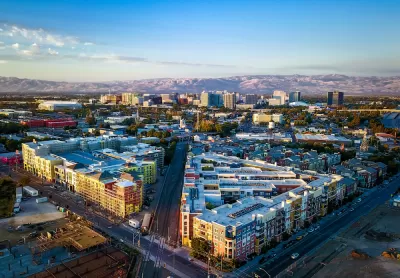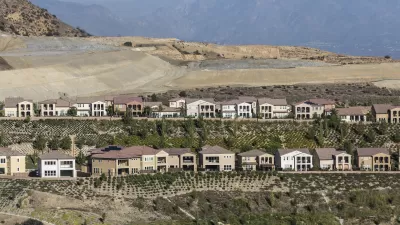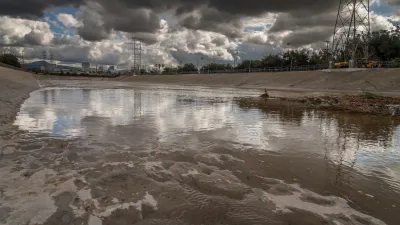Although no U.S. region has yet to even get halfway to sustainability goals set by the Paris Climate Agreement, certain U.S. cities are doing better than the rest.

Teresa Mathew reports: "U.S. coastal cities are coming the closest to meeting sustainability goals set by the UN, according to the first analysis of 100 metropolitan cities by the Sustainable Development Solutions Network (SDSN)."
"The Sustainable Development Goals Index measures how successfully cities are dealing with issues related to poverty, health, and equitable income distribution in addition to climate change objectives like cutting large carbon emissions," according to Mathew's explanation of the sustainability goals in question. According to the index, San Jose-Sunnyvale-Santa Clara has the highest score on the index, with 61.04. Provo-Orem is second on the list, but regions located in coastal states dominate the top ten.
Although it might seem like coastal proximity is an incentive to address the threats and challenges of climate change, Baton Rouge brings up the rear on the list of 100 "city regions." The Silicon Valley's top performance in the analysis would seem to contradict complaints about the tendency of Silicon Valley companies to build suburban-style campuses, away from transit, and Silicon Valley cities that have historically opposed land use regulations that could allow for new housing developments.
Mathews explains a few other big takeaways from the analysis, including he connection between poverty and emissions.
FULL STORY: America's Most (and Least) Sustainable Cities, Ranked

Maui's Vacation Rental Debate Turns Ugly
Verbal attacks, misinformation campaigns and fistfights plague a high-stakes debate to convert thousands of vacation rentals into long-term housing.

Planetizen Federal Action Tracker
A weekly monitor of how Trump’s orders and actions are impacting planners and planning in America.

In Urban Planning, AI Prompting Could be the New Design Thinking
Creativity has long been key to great urban design. What if we see AI as our new creative partner?

King County Supportive Housing Program Offers Hope for Unhoused Residents
The county is taking a ‘Housing First’ approach that prioritizes getting people into housing, then offering wraparound supportive services.

Researchers Use AI to Get Clearer Picture of US Housing
Analysts are using artificial intelligence to supercharge their research by allowing them to comb through data faster. Though these AI tools can be error prone, they save time and housing researchers are optimistic about the future.

Making Shared Micromobility More Inclusive
Cities and shared mobility system operators can do more to include people with disabilities in planning and operations, per a new report.
Urban Design for Planners 1: Software Tools
This six-course series explores essential urban design concepts using open source software and equips planners with the tools they need to participate fully in the urban design process.
Planning for Universal Design
Learn the tools for implementing Universal Design in planning regulations.
planning NEXT
Appalachian Highlands Housing Partners
Mpact (founded as Rail~Volution)
City of Camden Redevelopment Agency
City of Astoria
City of Portland
City of Laramie





























